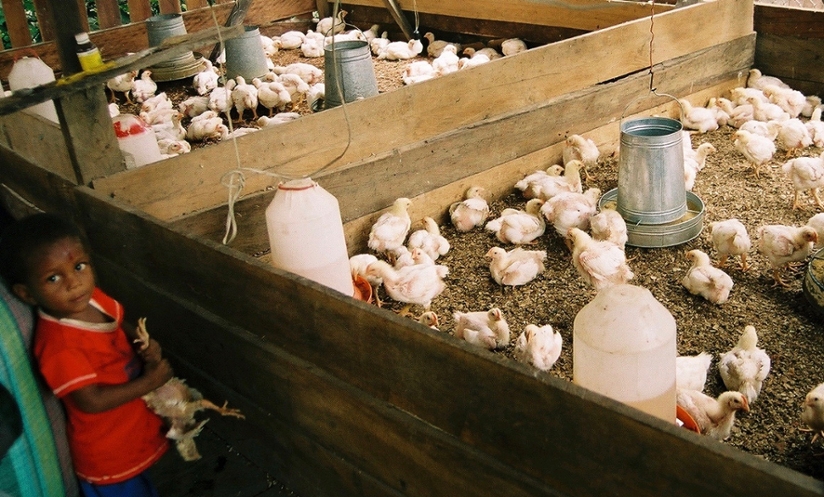Researchers receive grant to study poultry-carried pathogens and prevention strategies in Mozambique

Researchers at the Emory Rollins School of Public Health have received a 3-year, $600,000 grant from the Bill & Melinda Gates Foundation for a project entitled Chicken Exposures and Enteric Pathogens in Children Exposed through Environmental Pathways (ChEEP ChEEP) examining the link between poultry production in low-income settings and enteric diseases in children under age 5.
Led by Karen Levy, PhD, MPH, and Matthew Freeman, PhD, MPH, the study aims to identify key points of exposure to poultry-associated pathogens, such as those carried by animal feces, and develop potential intervention strategies to limit future exposure. While the link between animal feces and human health has not been well quantified, it is likely substantial, and low-income countries tend to experience high rates of both poultry production (domestic and industrial) and diarrheal diseases.
“Several recent studies that improved water, sanitation and hygiene in low-income settings have failed to show health gains among children,” says Freeman. “This is possibly due to the importance of two frequent pathways of enteric infection not adequately addressed: exposure to animal feces and exposure to pathogens through the informal food systems.”
The majority of the research project will be conducted in Mozambique, a country where poultry agriculture is ubiquitous. Applying a mixed-methods approach, the researchers will look at the food production system, from egg importation to chicken waste and carcass disposal, and identify areas where risks to children are highest.
"Together, campylobacter and non-typhoidal salmonella are estimated to cause more than 100,000 deaths annually, and are responsible for about 14 percent of deaths due to diarrhea worldwide, most of which occur in children," says Levy. "Finding new ways to limit these infections by improving food safety in low-income settings could help make a dent to improve child health globally."


